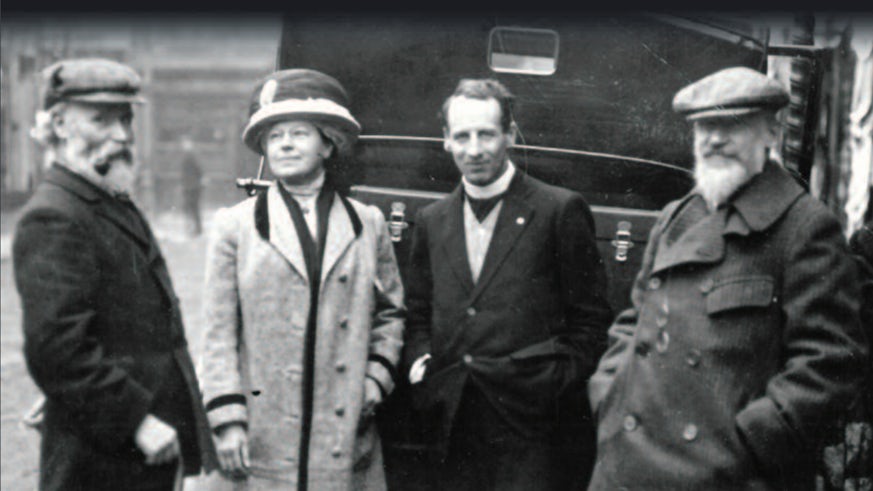Uncovered: the lost pioneers of Welsh socialism
30 March 2017

The spread of socialist ideas in Wales from the 1880s to the run up to World War One is revealed in a new book by a Cardiff University academic.
Wales and Socialism: Political Culture and National Identity before the Great War is a major new study by Dr Martin Wright of the School of History, Archaeology and Religion which uncovers a lively socialist political culture with roots both deeper and earlier than previously recognised.
The lost pioneers of Welsh socialism
Through detailed research, Dr Wright recovers from obscurity some of the lost pioneers of Welsh socialism and examines their ideas and identities. Emerging pioneers from across the nation include:
Congregational Minister, D.D. Walters
Originally from Sketty, Walters promoted socialism among the Coracle fishermen of the River Teifi in rural West Wales, when serving as a Nonconformist minister at Newcastle Emlyn. He travelled Wales delivering his great speech O Gaethiwed i Ryddid (From Slavery to Freedom), which analysed world history since the Garden of Eden from a socialist perspective.
Nationalist turned socialist, Robert Jones Derfel
Welsh nationalist-turned socialist, Derfel moved from his native Meirionnydd to Manchester, where he wrote numerous pamphlets and newspaper articles in his native Welsh to convert his fellow countrymen to socialism. He was among the first of the Welsh socialists to consider the relationship between his Welsh national identity and the aspirations of internationalist socialism.
School teacher, David Thomas
Author of the most important Welsh book on socialism Y Werin a’i Theyrnas (The Common People and their Kingdom), Thomas of Talysarn, Caernarfonshire worked to promote the independent Labour Party in north Wales. One of the most diligent and devoted of all socialist activists, he initiated an effort to ‘clothe socialism in Welsh dress’ in the early twentieth century.
Medical doctor, Dr David Rhys Jones
Originally from rural Cardiganshire, David Rhys Jones emigrated to Australia, and then returned to his native land to practice as a doctor in Cardiff. He was instrumental in the establishment of Fabian Societies in Cardiff and Llandysul in the 1890s, and he promoted socialism by speaking on socialist platforms in Cardiff and the south Wales valleys as well as writing for the Welsh press.

Wales and the wider world
Focusing upon the way that socialists related to Welsh national identity, the book examines socialism as part of an ideological, political and cultural interplay between Wales and the wider world, and between the different regions of Wales itself. As Britain drifted towards the Great War the question of national identity within Welsh (and British) socialism remained unresolved, which was to have consequences that reverberated across the 20th century.
Dr Wright said: “We live in a period when socialism – an idea that played such an important role in creating many of the positive aspects of the Britain I grew up in – is in a very fluid state. It isn't clear how socialist ideas might be adapted to the rapidly changing circumstances in which we find ourselves..."

“By re-examining the origins of socialism in Wales, my work seeks to provide a historical context within which we can understand some of our present dilemmas."
"It demonstrates that socialism in Wales was made from a unique synthesis of the universal and the particular; it was created by individuals who had thought deeply about their place in the world and their national identity. I’m suggesting implicitly that if socialism is to be relevant to Wales in the 21st century we need to continue and build upon the dialogue with the past that is at the heart of the book.”
Share this story
The School allows the brightest and best to explore and share their passion for past societies and religious beliefs, from prehistory to the present day.


